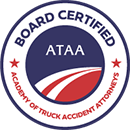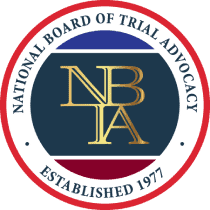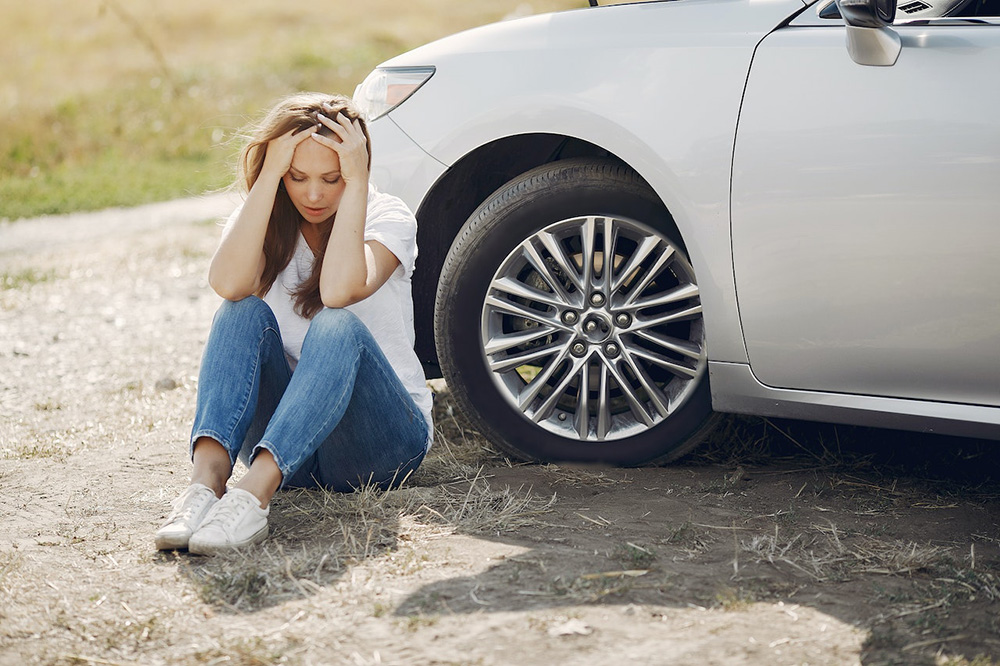Can I Recover Damages if I’m Being Blamed for the Crash?
You get involved in a truck accident and get hurt, but the trucker, their employer (the fleet company), or someone else (like a big rig manufacturer) isn’t wholly to blame for what happened. Instead, you believe that your actions as a passenger car driver, for example, might have played a contributory role in causing the crash.
If you’re suffering from serious (and costly) injuries and you’re wondering if you have any recourse for recovering compensation to help you pay those expensive medical bills or to recoup any lost wages you’ve amassed from being hurt, then keep reading this piece. Below, we’ll share whether you can recover damages if you’re being blamed for the crash.
How Liability in Truck Accidents Works
Before we answer the question about whether you can recover compensation if you’re either partially or wholly responsible for a crash, it’s important for us to first discuss how liability is determined in truck accidents. Put quite simply; there are four elements that must be established to prove liability. Those include:
- The tractor-trailer driver or other vehicle operator owed you a duty of care
- That other motorist breached the duty of care that they owed you
- That person’s breach of duty resulted in you suffering harm (establish causation)
- You suffered damages as a result of that person’s breach of duty and the harm you suffered
It should be noted that each state (jurisdiction) affords truck and other auto accident victims, and more specifically, injured individuals, different rights depending on the laws or the rules they subscribe to. Since we’re a multi-state truck accident law group, we feel it’s important to highlight some important details having to do with liability. Those include:
There Are At-Fault and No-Fault States
Each state either subscribes to an at-fault or no-fault doctrine when determining liability in any motor vehicle accident.
An injured person would generally be entitled to file an insurance claim to recover damages with the at-fault motorist’s bodily insurance policy in the former. In the latter type of state, motorists are typically required to carry personal injury protection coverage that they can tap into to pay their accident-related costs if they get hurt in a crash.
However, it should be noted that in no-fault states, it is possible to file a claim against the motorist, like a trucker you allege caused your crash, if your damages exceed your policy limits and you can prove that the other party’s negligence caused the wreck.
Comparative Negligence Standards Apply in Some States
Some states have comparative or modified comparative negligence standards in place that apply in cases in which an injured party is eligible to recover compensation from an at-fault party. In these situations, this standard assigns a specific percentage of responsibility to the respective involved parties.
This concept, also known as comparative responsibility or comparative fault, can be divided into three categories depending on the jurisdiction:
- Modified comparative fault
- Pure comparative fault
- Pure contributory negligence
The doctrine that applies in a specific jurisdiction may dictate what percentage of losses a victim may be able to recover and, in some cases, may limit their ability to recover any if they’re 50-51% to blame for the collision.
How Your Insurance Coverage Affects Your Ability To Recover Damages After a Crash
Most states have mandatory minimum coverage and then optional add-ons to your coverage that you can purchase. Some of those add-on insurance coverage options, which you may be able to collect, regardless of liability, may include:
- Medical payments: Med pay coverage covers you and your passengers’ medical bills if you get hurt in a crash, regardless of liability.
- Underinsured or uninsured motorist coverage: Uninsured coverage is most commonly used in instances where there’s a hit-and-run accident or the other party involved and perhaps at fault for your collision doesn’t have insurance. Underinsured coverage exists to provide someone with an added financial well from which to seek monetary compensation if the other motorist’s insurance, which you initially file a claim with post-crash, isn’t adequate enough to cover any accident-related damages you’ve sustained.
Is It Possible To Recover Damages if You Caused a Crash?
So, now that we’ve covered a wide range of liability issues, doctrines states subscribe to, and some types of insurance coverage that, if motorists have it, can help them recover compensation, no matter who’s at fault for a crash, let’s discuss the issue at hand, which is the recovery of damages when some of these unique circumstances don’t apply.
Say a more “textbook” scenario occurs whereby a tractor-trailer crashes into you, leaving you seriously injured after you crossed the center line into oncoming traffic on a two-lane highway because you fell asleep at the wheel, causing a head-on truck accident. If this occurred in an at-fault state, it’s quite plausible that you could end up not being able to recover compensation if you were deemed majorly or wholly responsible for the crash.
Your only hope in such a situation (or any situation in which your negligence is being cited for causing the crash) is to suggest otherwise by citing other contributory actions the other motorist took that may have resulted in the collision, causing your injuries.
Where Legal Counsel Figures Into a Case in Which You’re Accused of Having Caused a Crash
Determining whether the state in which your crash occurred is an at-fault or no-fault state and whether comparative negligence or fault standards apply is critically important. A skilled attorney should be able to easily determine which of these rules apply in your case.
Also, it should be noted that liability determinations aren’t always accurate. That’s why assessing evidence in a truck accident case is necessary. This is especially the case if doing so is necessary to push back on another party’s allegations that you caused a crash, and this can be challenging to do. However, an experienced attorney like one on our Super Team of lawyers at Trucking Injury Law Group has the necessary experience to defend you, so you may have a fighting shot of being eligible for compensation in your case.
Schedule a no-risk, no-obligation free consultation to discuss your case with an attorney in our office, so you’ll have a better idea of legal remedies, if any, available to you to recover damages in your crash case that you’re accused of having caused.






